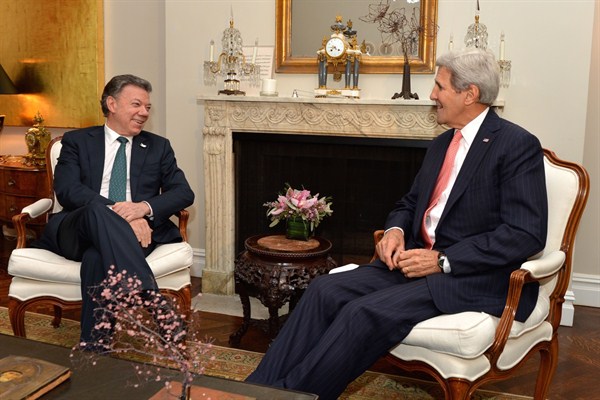On July 20, Colombia’s peace talks with the FARC guerrilla group emerged from what was hopefully their roughest patch. With daily episodes of combat between FARC militants and the Colombian army, June was the most violent month in Colombia since peace talks began in October 2012. Then, in late July, at the strong urging of foreign diplomats accompanying the talks, the FARC declared a new unilateral cease-fire, and both sides said they would dedicate themselves to making it bilateral. The three months since then have been the least violent that Colombia has experienced since 1975.
The July truce and de-escalation plan appeared to sweep away the last shreds of skepticism about the peace talks from Colombia’s key international supporter: the U.S. government. While the Obama administration’s public statements about the talks’ prospects have consistently been supportive, the tone of officials’ private comments shifted from, “I’ll believe it when I see it,” to, “This is going to happen, and we’re thinking about the post-conflict period.”
That sentiment seemed even more fitting after Sept. 23, when President Juan Manuel Santos’ government and the FARC announced their agreement on the outlines of the thorniest issue on their agenda: justice and punishment for both sides’ human rights violators, with the ambitious goal of a final peace accord by March 2016.

